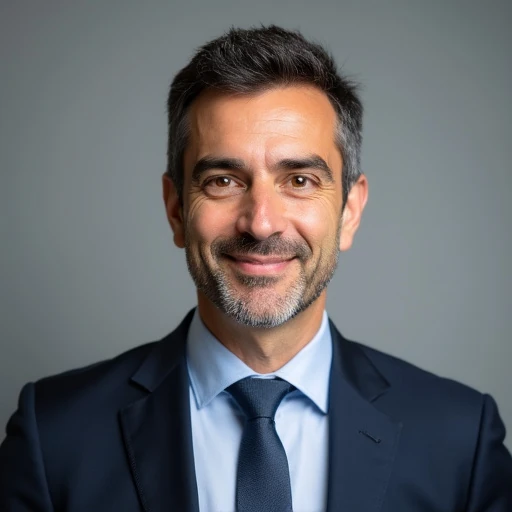An angel investor who backed AI voice startup ElevenLabs decided to fund the company just 30 minutes after meeting one of its co-founders. The company, which was once struggling to attract venture capital, now allows employees to sell shares at a valuation of $6.6 billion.
Carles Reina, an experienced investor, committed to backing ElevenLabs in 2022, long before the generative AI boom captured global attention. At the time, he was a venture partner at the pre-seed fund Concept Ventures. His decision was based on a single conversation with co-founder Mati Staniszewski, who was then still working at Palantir Technologies.
Key Takeaways
- Angel investor Carles Reina decided to fund ElevenLabs after a 30-minute conversation with co-founder Mati Staniszewski in 2022.
- ElevenLabs, a voice AI company, recently reached a $6.6 billion valuation.
- Reina targeted the voice AI sector because it was overlooked by mainstream venture capitalists at the time.
- The investment strategy focused on the founder's technical expertise and vision for solving the problem of robotic-sounding AI voices.
The Decisive Conversation
The initial meeting between Carles Reina and Mati Staniszewski was brief but impactful. Reina, who was also an employee at Palantir at the time, was immediately convinced by Staniszewski's vision for the future of voice AI technology.
“We started talking, and within 30 minutes of the first conversation, I told him, ‘How much money do you want?’” Reina recalled in a recent interview.
This rapid decision highlights Reina's investment philosophy, which prioritizes the potential of the founders over a fully developed product. He specializes in pre-seed companies, which often consist of little more than an idea and a founding team. For him, the human element is the most critical factor.
Identifying Founder Potential
Reina looks for specific traits in the entrepreneurs he supports. His focus is on individuals with deep technical knowledge who are building a global company from the very beginning.
“If there is a product, fantastic, but if there is no product, absolutely fine for me,” he explained. “I love founders that are very technical. They’re super sharp, very smart.”
He believes that founders with a strong technical background possess a more profound understanding of both their product and the market they intend to serve. Staniszewski, who holds a first-class honors degree in mathematics from Imperial College London, fit this profile perfectly.
What is Pre-Seed Investing?
Pre-seed investing is the earliest stage of startup funding. Investors provide capital to a company that is often still in the idea phase, before it has a proven business model or a finished product. These investments are considered high-risk but offer the potential for very high returns if the company succeeds.
Betting on an Overlooked Industry
In 2022, before the widespread launch of tools like ChatGPT, voice AI was not a popular area for investment. Major technology companies had text-to-speech products, but they hadn't achieved significant market traction, largely due to their robotic and unnatural sound.
This lack of interest from other investors was precisely what attracted Reina to ElevenLabs.
“With ElevenLabs no one was looking at voice AI, literally no one wanted to give [them] money. No VCs wanted to actually back ElevenLabs,” Reina stated. “Those are the type of industries that I really like, so that I can get in before everyone else.”
Reina's investment history shows a pattern of identifying promising sectors before they become mainstream. He has made 74 angel investments over the past eight years, including in companies like Revolut and Elroy Air. “I’ve done [invested in] mostly AI before it was sexy. I’ve done robotics before it was sexy as well,” he added.
ElevenLabs' Rapid Growth
- Founded: 2022 by Mati Staniszewski and Piotr Dąbkowski.
- January 2024: Raised $180 million at a $3.3 billion valuation.
- September 2024: Allowed employees to sell shares at a $6.6 billion valuation.
Solving the Core Problem of Voice AI
The primary challenge holding back voice AI was the quality of the output. Staniszewski's understanding of this fundamental issue was a key factor in securing Reina's investment. He recognized that user adoption depended entirely on creating AI voices that sounded natural and human-like.
“No one wants to talk to AI voices if they sound robotic. That’s fundamentally the biggest problem that there was,” Reina explained. He was impressed that Staniszewski was already thinking about solving the entire ecosystem's problems before even having a product or speaking to potential customers.
This foresight and deep understanding of the market's core need convinced Reina that ElevenLabs was positioned for success, making it one of the few startups he backed in less than an hour.
The Future of ElevenLabs
Since its founding, ElevenLabs has experienced exponential growth. The company specializes in advanced text-to-speech and voice cloning technology, attracting significant investment and a soaring valuation.
Today, Reina is no longer just an investor; he has joined the company as a go-to-market manager, helping to guide its expansion. According to Staniszewski, the company is planning to build new hubs in Paris, Singapore, Brazil, and Mexico.
Furthermore, ElevenLabs is preparing for a potential Initial Public Offering (IPO) within the next five years. This trajectory from a pre-seed idea to a multi-billion dollar enterprise poised for the public market underscores the success of Reina's high-conviction, founder-focused investment strategy.





